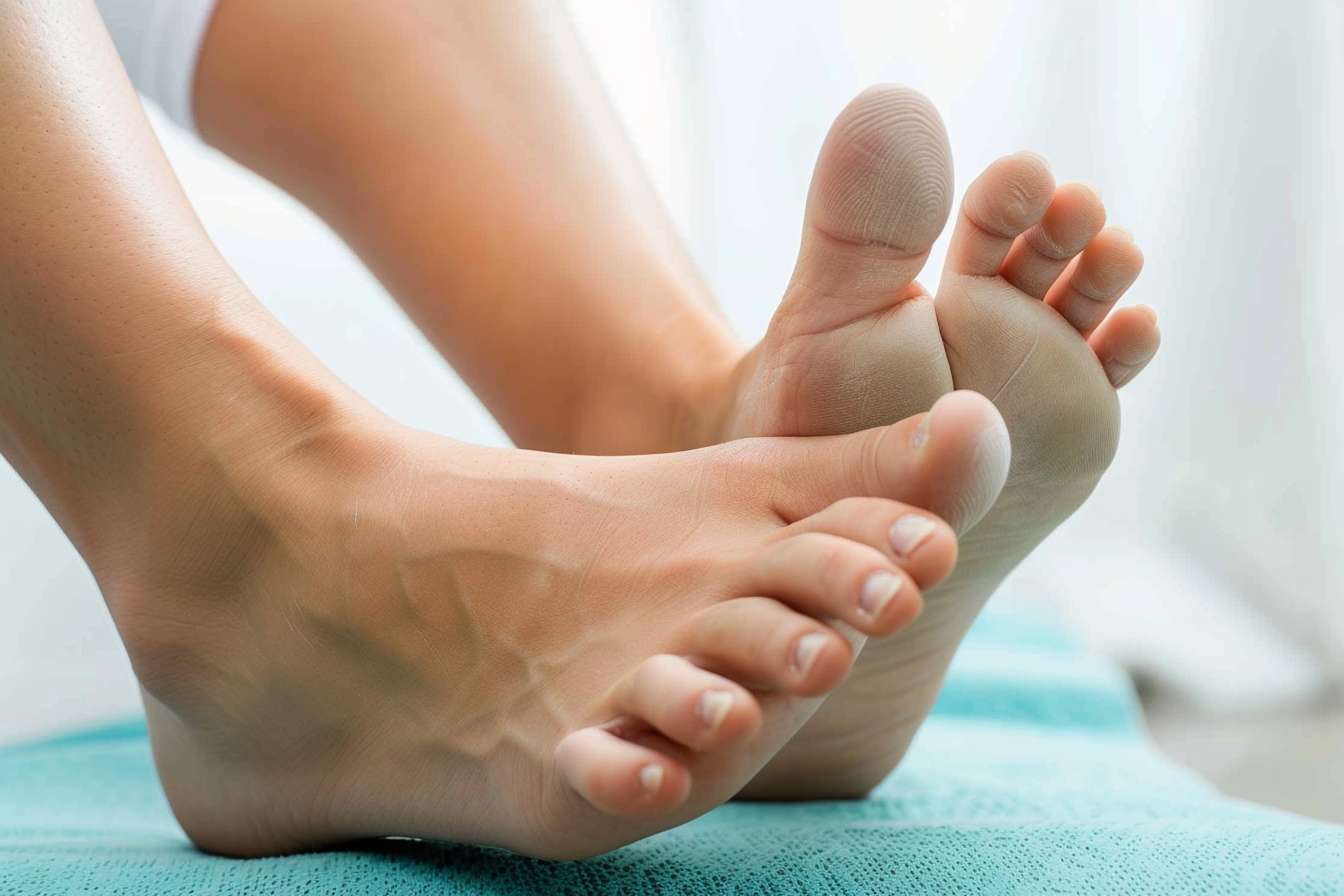Explore Foot Neuropathy: Symptoms, Treatments, and Lifestyle Changes
Foot neuropathy affects millions of people worldwide, causing pain, numbness, and mobility challenges that can significantly impact quality of life. This nerve damage condition often develops gradually, with many sufferers initially dismissing early symptoms as temporary discomfort. Understanding the symptoms, available treatments, and beneficial lifestyle modifications can help those affected manage their condition more effectively and potentially slow its progression.

What Are the Common Neuropathy Symptoms in Feet?
Foot neuropathy typically presents with several distinctive symptoms that may vary in intensity and combination. Many patients report numbness or reduced sensation in their feet, often describing it as feeling like they’re wearing invisible socks. Tingling sensations, frequently compared to “pins and needles,” can occur intermittently or persistently. Sharp, shooting, or burning pain is another hallmark symptom, particularly troublesome during rest periods or at night. Some individuals experience heightened sensitivity where even light touch from bedsheets becomes painful. Physical manifestations may include skin changes, decreased coordination, muscle weakness, and balance problems that increase fall risk. In advanced cases, people might develop foot deformities or be unaware of injuries due to diminished sensation.
What Causes Peripheral Neuropathy in the Feet?
Diabetes is the leading cause of foot neuropathy, affecting up to 50% of diabetic patients over time due to prolonged high blood sugar damaging nerve fibers. However, numerous other factors can contribute to this condition. Vitamin deficiencies, particularly B vitamins including B1, B6, B12, and folate, can compromise nerve health. Autoimmune disorders like rheumatoid arthritis or lupus sometimes trigger the immune system to attack nerve tissue. Certain medications, especially chemotherapy drugs, can cause neuropathy as a side effect. Excessive alcohol consumption depletes essential nutrients and directly damages nerves over time. Infections such as Lyme disease, shingles, or HIV may lead to neuropathic complications. Physical trauma from injuries, repetitive motions, or tight-fitting footwear can compress nerves. In some cases, genetic factors predispose individuals to developing neuropathy, while approximately 30% of cases remain idiopathic (without identifiable cause).
What Treatment Options Exist for Numbness and Tingling in Feet?
Medical treatments for foot neuropathy aim to address underlying causes while providing symptomatic relief. For diabetes-related neuropathy, strict blood sugar control remains fundamental to preventing further damage. Prescription medications like gabapentin, pregabalin, duloxetine, and amitriptyline help manage neuropathic pain by altering pain signal transmission. Topical treatments including lidocaine patches, capsaicin cream, or menthol preparations offer localized relief for some patients. Physical therapy programs can improve strength, balance, and coordination while maintaining mobility. Advanced interventions such as transcutaneous electrical nerve stimulation (TENS), which delivers mild electrical impulses to nerves, may reduce pain signals. For severe cases, nerve blocks or specialized nerve stimulation implants might be considered. Emerging treatments including alpha-lipoic acid supplements, peptide therapies, and specialized infusions show promise in research but require further clinical validation.
Can You Reverse Neuropathy in Your Feet Naturally?
While complete reversal of established neuropathy remains challenging, natural approaches may slow progression and improve symptoms in some cases. Nutritional interventions play a crucial role, particularly addressing vitamin deficiencies with B-complex supplements, alpha-lipoic acid, and magnesium. Research suggests these nutrients support nerve repair mechanisms and reduce inflammation. Regular moderate exercise improves circulation, delivering essential nutrients to damaged nerves while potentially stimulating nerve regeneration. Activities like walking, swimming, and gentle yoga are generally well-tolerated. Acupuncture has demonstrated benefits for some neuropathy patients through its effects on pain signals and inflammation. Massage therapy enhances circulation and may temporarily relieve discomfort. Stress reduction techniques including meditation, guided imagery, and breathing exercises can modulate pain perception. However, natural approaches should complement rather than replace conventional medical treatment, and their effectiveness varies significantly between individuals based on neuropathy type, severity, and underlying causes.
What Home Remedies Help Relieve Neuropathy Symptoms in Feet?
Several accessible home-based strategies can provide meaningful symptom relief for many neuropathy sufferers. Warm foot baths with Epsom salts increase blood flow while reducing inflammation and pain. Contrast therapy, alternating between warm and cool water, stimulates circulation to affected areas. Gentle self-massage using appropriate techniques helps relax muscles and improve blood flow. Essential oils such as lavender, eucalyptus, or peppermint, when properly diluted and applied topically, create warming or cooling sensations that interrupt pain signals. Dietary modifications focusing on anti-inflammatory foods like colorful fruits, vegetables, fatty fish, nuts, and olive oil may help manage symptoms. Turmeric supplements containing curcumin show promise for their anti-inflammatory properties. Proper foot care routines including daily inspection, moisturizing, appropriate footwear, and avoiding prolonged pressure are essential preventive measures. Compression socks may benefit some patients by improving circulation and reducing fluid buildup, but should be properly fitted to avoid restricting blood flow.
What Lifestyle Changes Support Neuropathy Management?
Comprehensive neuropathy management extends beyond treatments to encompass broader lifestyle modifications. Maintaining healthy blood sugar levels through diet, exercise, and medication adherence is paramount, especially for diabetic neuropathy. A balanced diet rich in anti-inflammatory foods, lean proteins, complex carbohydrates, and healthy fats provides essential nutrients for nerve function while minimizing inflammation. Weight management reduces mechanical stress on feet and improves metabolic factors that influence neuropathy progression. Smoking cessation is crucial as nicotine constricts blood vessels, compromising circulation to extremities and exacerbating neuropathy. Limiting alcohol consumption prevents further nerve damage and nutritional deficiencies. Proper footwear with adequate cushioning, arch support, and toe room protects vulnerable feet from injury and pressure points. Regular podiatric check-ups enable early intervention for potential complications. Establishing consistent sleep patterns supports the body’s natural healing processes and helps manage pain perception. These lifestyle adjustments, while not curative, create optimal conditions for nerve maintenance and potential healing.
Foot neuropathy represents a complex condition requiring a multifaceted approach combining medical treatments, natural remedies, and lifestyle modifications. While complete reversal remains elusive for many patients, proper management can significantly improve quality of life and functional capacity. The most successful approaches typically integrate conventional medical care with appropriate complementary strategies, tailored to individual circumstances and regularly adjusted based on response. For those experiencing neuropathy symptoms, early evaluation by healthcare professionals remains essential for proper diagnosis and development of comprehensive treatment plans.
This article is for informational purposes only and should not be considered medical advice. Please consult a qualified healthcare professional for personalized guidance and treatment.




